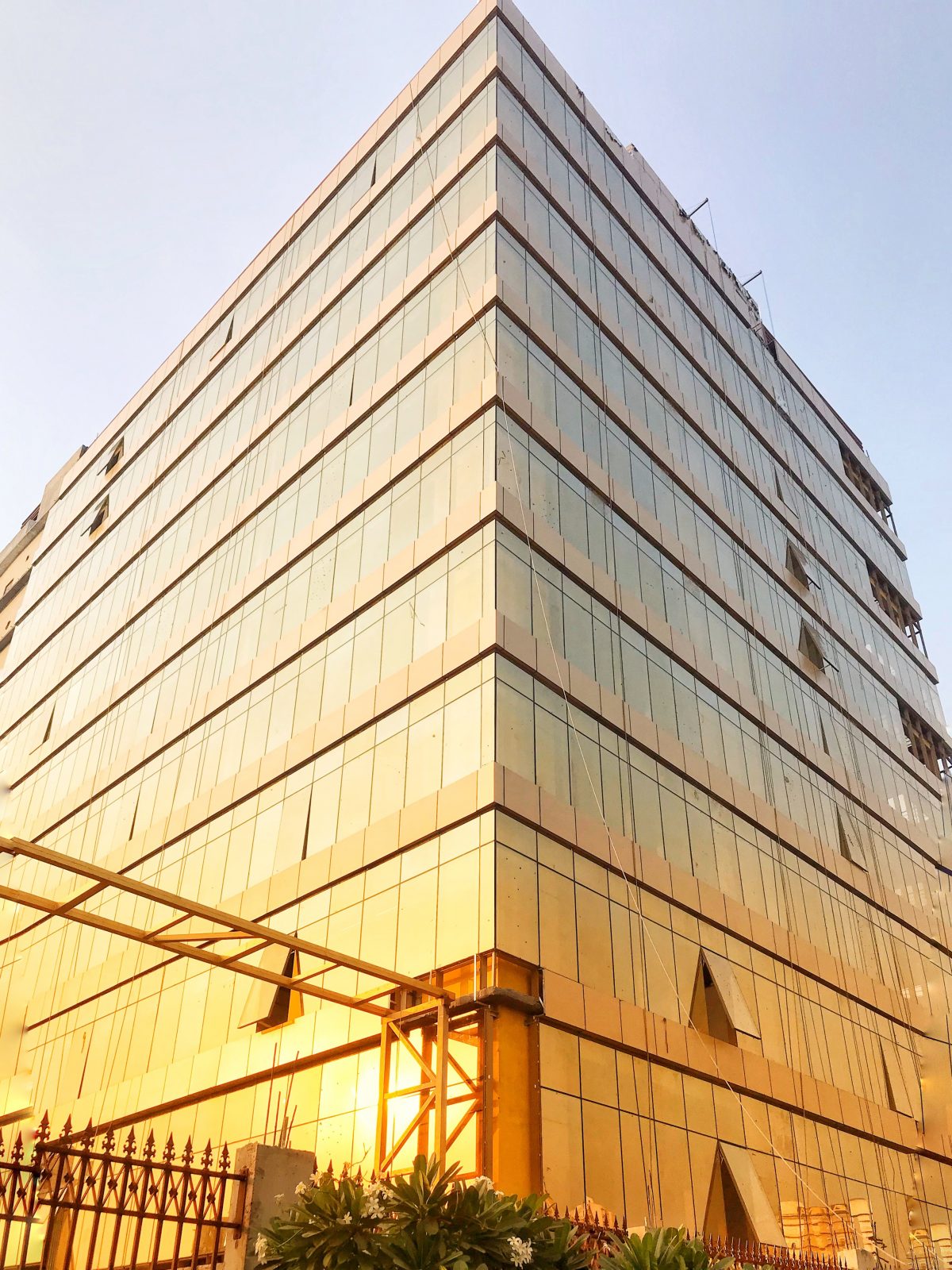Glass has evolved significantly over the years in both functionality and aesthetics. Reflective glass is one of the most innovative developments, offering exceptional heat and glare resistance. This is a significant improvement, considering the rise in global temperatures.
In this blog, we will explore the features, benefits, drawbacks and applications of reflective glass to gain a deeper understanding.
What is Reflective Glass?
Reflective glass, also known as mirror glass, has a mirror-like appearance and reflects natural light, enhancing privacy by preventing visibility from the outside. The key benefit of installing reflective glass over regular glass is the amount of heat radiation it offers, significantly lowering the cost of air conditioning.
Features of Reflective Glass
Listed below are the various features of reflective glass:
- Solar Control: Reflective glass blocks out a significant amount of the sun rays falling on it. This allows only natural light in without being exposed to intense UV rays for long durations. This helps protect your indoors, preserving its longevity while ensuring the well-being of your loved ones.
- Glare Reduction: One key advantage of reflective glass is that it reduces glare from direct sunlight, making it ideal for homes, offices, and commercial spaces where excessive brightness can be an issue.
- Privacy Enhances: The reflective glasses are designed to obstruct visibility completely from the outside, enhancing the privacy of people indoors.
- Aesthetic Appeal: Reflective glass’s sleek, modern look makes it a lucrative option for enhancing a building’s aesthetics. Many high-rise buildings, such as skyscrapers, use reflective glass on their windows. They are also commonly used in facades to provide a more seamless integration with the surrounding environment.
- Energy Efficiency: Reflective glasses are highly energy efficient, as they reflect most of the sun’s rays, they absorb excess heat, keeping the interiors cool, lowering dependence on cooling devices, making them a very sustainable choice for buildings.
Advantages of Reflective Glass
Reflective glass continues to be a popular choice in modern architecture, offering both aesthetic appeal and practical benefits for buildings.
Some of the key advantages of reflective glasses are:
- Reflective glass prevents excess heat penetration in your home or commercial space, allowing only natural light in.
- These windows also have UV-protection preventing glare, thereby minimising eye strain and maintaining the longevity of walls, furniture, curtains and more.
- The exterior side of the glass is coated, making it opaque to anyone looking from outside. This enhances privacy and also reduces the cost of blinds and shades.
- Reflective glass windows are energy efficient, while also providing sound insulation. This helps create a calm and comfortable ambience indoors, free of blaring noise and excess heat.
- Reflective glass enhances the aesthetic appeal of buildings and can be combined with other glass types, such as tinted, ceramic-printed, or patterned glass, for a unique and artistic look.
- Reflective glass can be tempered, laminated, or incorporated for ease of use.
Disadvantages of Reflective Glass
- Natural light transmission is less than that of float glass, so people might have to use artificial lighting to improve indoor illumination.
- During the winter season, glasses might not reflect the required light, and people might have to depend on heating devices for that duration.
Applications and Uses for Reflective Glass
- It is widely used in bathrooms, dressing rooms, living rooms and more.
- Reflective Glass is also commonly used in commercial buildings and skyscrapers in glass facades.
- It is also used in entrance doors, showroom partitions, storefronts, etc.
- Reflective Glass is also an ideal choice for areas where high privacy and sound insulation are required, such as police stations, computer rooms, banks and more.
- Reflective glass is ideal for skylights, as it prevents overheating while still allowing natural light to enter.
- Reflective glass is used in car windows and sunroofs to reduce glare and heat, improving passenger comfort.
Conclusion
Reflective glass is a high-performance material with multiple benefits. At AIS Glass, you can find a stylish, energy-efficient, and functional glass solution for your home or commercial space.

